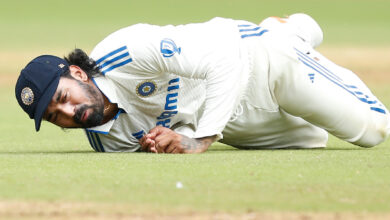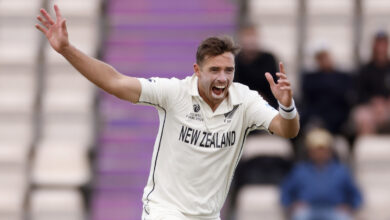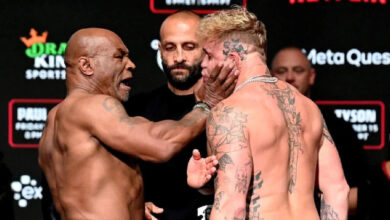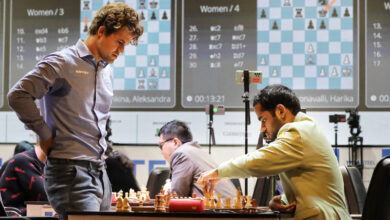Inspired Saurabh Chaudhary, Varun Tomar wins India first medal at the ISSF Cairo World Cup

Munkhbayar Dorjsuren looked like she could barely watch. The fight to claim the bronze medal in the men’s 10m air pol event at the ISSF Cairo World Cup had boiled down to a single shot. It was a winner-takes-all shoot-off between two of Dorjsuren’s wards in the Indian shooting team: 21-year-old Sarabjot Singh and 19-year-old Varun Tomar.
They had jockeyed for the last medal spot throughout the ranking match – with Sarabjot in third after 10 shots, Tomar leapfrogging him the 15th, before being deadlocked at 250.6 after 25 shots to decide the bronze medal. In one shot, one of the two would take home India’s first medal at the Cairo World Cup while the other would return empty-handed.
Eventually, it was Tomar’s 10.3 that helped him pip his senior compatriot a margin of 0.2.
“He’s very sorted and focused. He knows what he wants to do, and goes about it without being too excited or jumpy. It’s almost like he’s going in slow motion. He’s very relaxed,” said Samresh Jung, who is in Cairo as coach of the Indian pol contingent.
To illustrate just how focused on the job Tomar can be, Jung said that he had rarely seen the 19-year-old on his phone.
“The first time I met him was around two years back, when he was a junior shooter. He was just the same then as he is now – serious, straightforward. He’s not at all like other teenagers,” the multiple Commonwealth Games gold medall said.
His assessment of Tomar inevitably brought up comparisons with another young shooter who had taken Indian shooting storm in the last Olympic cycle: Saurabh Chaudhary, the only Indian marksman to make the finals at the Tokyo Olympics, who happens to be his cousin, and the reason he started shooting in the first place.
“Saurabh bhaiya was the first one to start shooting in our family. He is my bua’s (father’s ser’s) son. It was only after seeing his success that my family pushed me to take up shooting,” Tomar told The Indian Express from Cairo.
Just like Chaudhary, Tomar started training under Amit Sheoran. Currently, he doesn’t have a personal coach and trains at a range at home.
Just like his elder cousin, Tomar was unflappable throughout the final on Sunday, despite being the youngest shooter in a very young eight-man field. Even after he had secured the medal, he made his way to his seat beside Dorjsuren with not even the ghost of a smile.
“That’s how he is, very serious. In fact, just before the final, we were urging him to smile at least when the camera was on him,” said Jung.
Jung missed the medal ceremony for the men’s 10m air pol event because he had to go for the women’s 10m air pol final. But he hoped at least on the podium, Tomar had managed to crack a smile.
But as multiple photos of Tomar on the podium showed, those exhortations and hopes of the coaches had fallen on deaf ears.
Manu fifth in 10m air pol
Tokyo Olympian Manu Bhaker finished in fifth spot while Divya Thadigol ended seventh in the women’s 10m air pol event on Sunday. Having shot 572 in qualifying, Manu had just about sneaked into the eight-woman finals, being tied with four other shooters. Divya, meanwhile, had qualified in second position with a score of 576.
In the final though, a woeful third series of 46.7 saw 27-year-old Divya being eliminated in seventh spot. Manu’s challenge lasted five more shots, after which she bowed out in fifth spot.
Despite qualifying in eighth spot, Veronika Major of Hungary claimed the gold medal, overcoming Serbia’s Zorana Arunovic in a lopsided final. Olympic medall Anna Korakaki of Greece claimed bronze.







